The rufous-collared sparrow or Andean sparrow Zonotrichia capensis,
It's a very interesting bird, its common name of Sparrow Copetón as it is known in this Colombian Andean part of the world, it gets its name from its cute grey hair style with black stripes, this bird does not excede15 Cm in size, it has a straight beak and an elegant necklace of color Rufous that it highlights by its tonality in scales of gray in its body.
El gorrión Copetón (The rufous-collared sparrow or Andean sparrow) Zonotrichia capensis, es una ave muy interesante, su nombre común de gorrión copetón como se le conoce en esta parte andina colombiana, se le otorga por su lindo copete gris con rayas negras, ésta ave no pasa los 15 Cm de tamaño, tiene un pico recto y un elegante collar de color rufo que le resalta por su tonalidad en escalas de grises en su cuerpo.
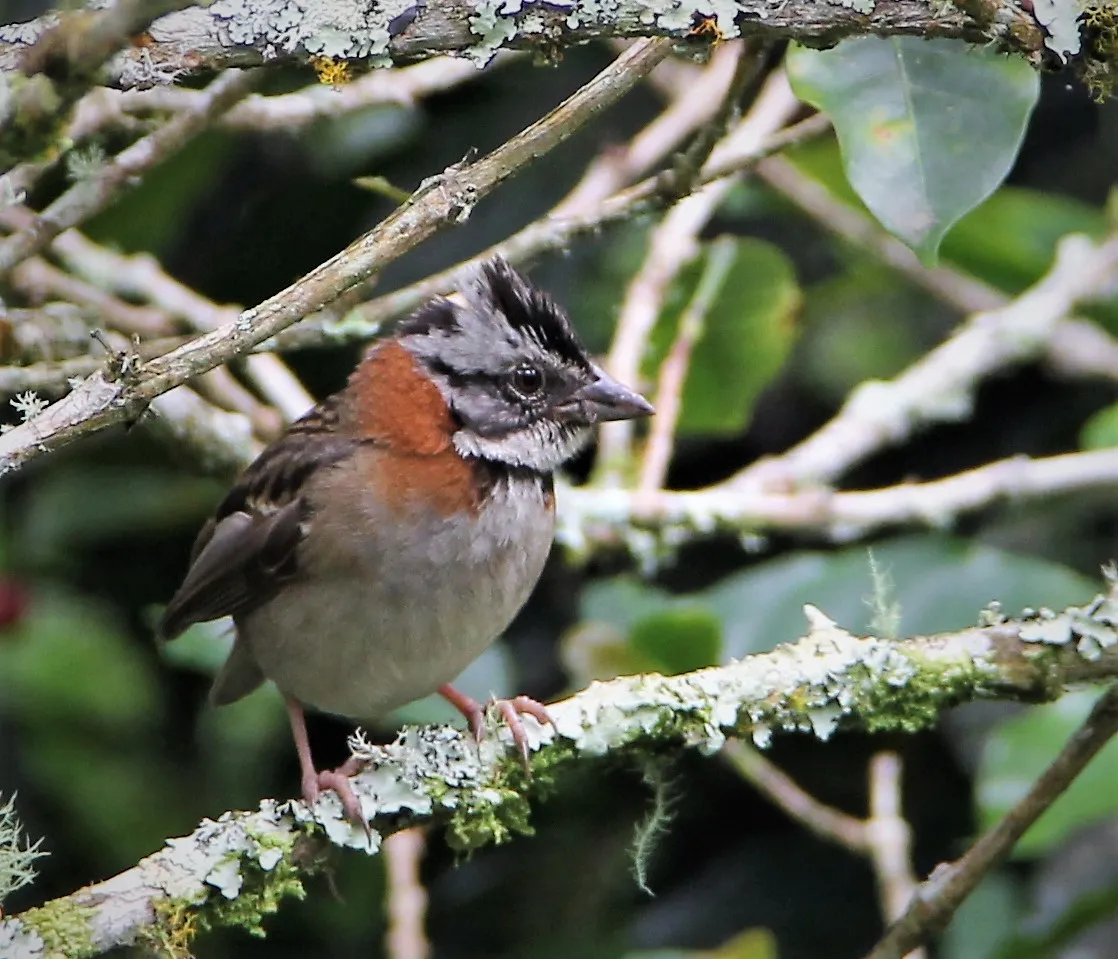
This beautiful bird sometimes looks like a small chicken, it appears in the garden on the ground scratching with its tiny feet and extracting bugs or worms, it bites the pieces of banana and cassava left by the hens on the ground.
Esta hermosa ave aveces parece una pequeña gallinita, pues aparece en el jardín justo en el suelo escarbando con sus paticas y extrayendo gusanos o lombrices, pica los pedacitos de plátano y de yuca que dejan las gallinas en el suelo.
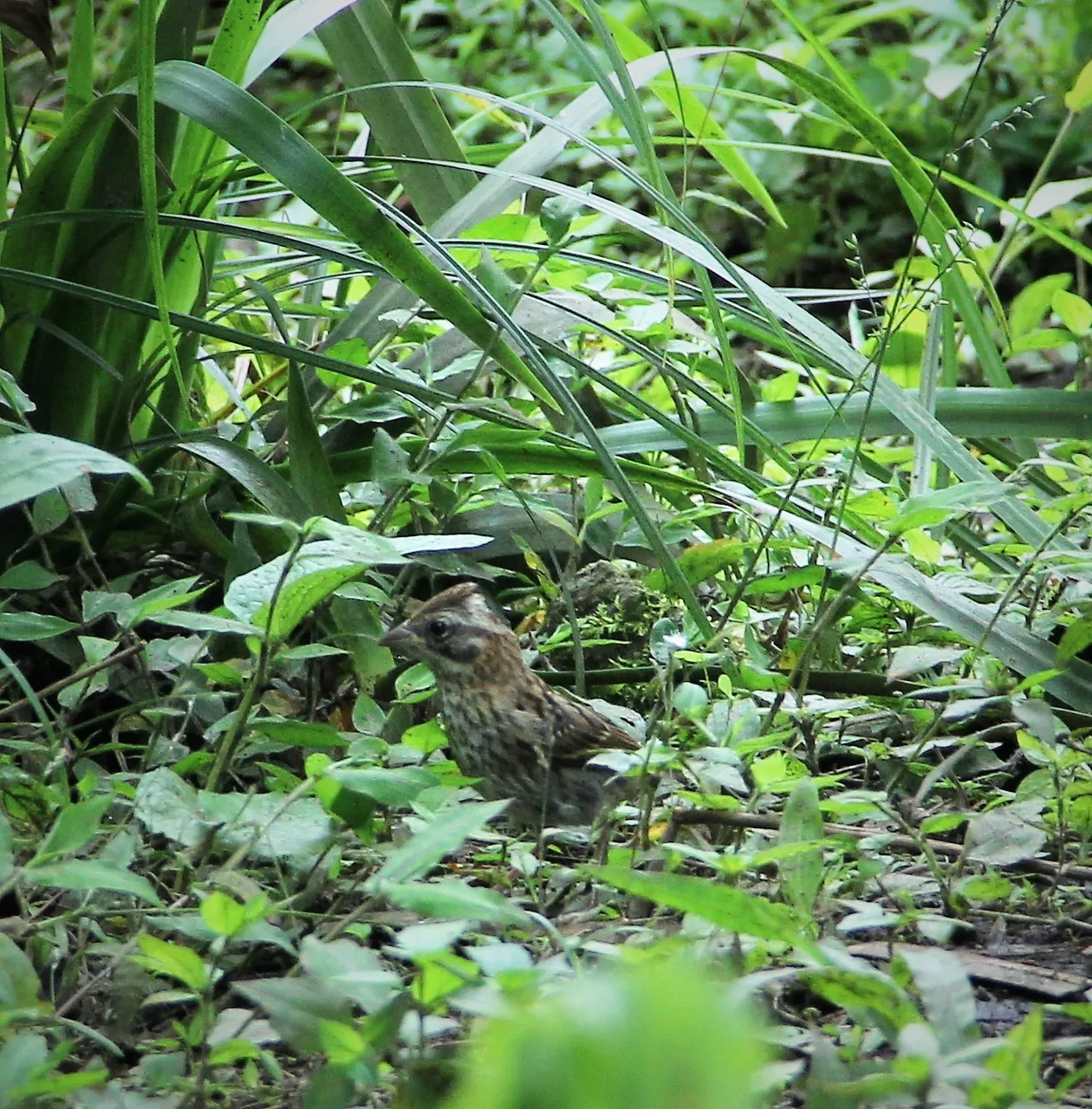
I was trying to spread garlic in the garden just in front of the kitchen window, I had planted many cloves of garlic, all germinated healthy, but from one week to the next the garlic disappeared, I had no choice but to watch the garden by the window and observe carefully.
Yo estaba tratando de propagar ajos en el jardín justo frente a la ventana de la cocina, había sembrado muchos dientes de ajos, todos germinaron saludablemente, pero de una semana a la otra los ajos desaparecieron, no me quedaba más que vigilar el jardín por la ventana y observar cuidadosamente.
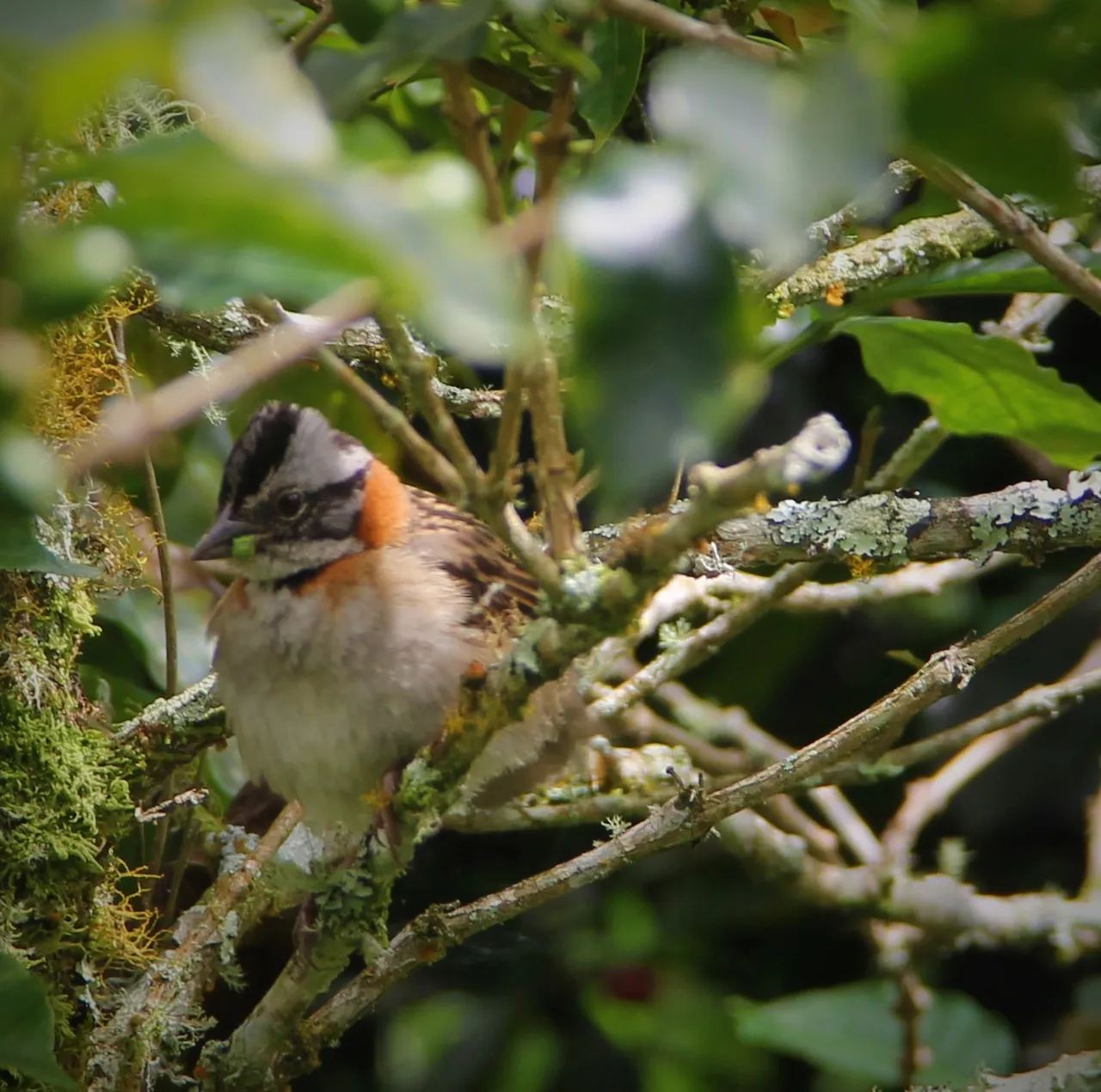
I was quite surprised when I could see a beautiful sparrow copetón with a large garlic in its small beak. I didn’t have a chance to photograph the act.
This curious bird was the one responsible for our garlic crop not growing. Once he finished all the garlic he continued to steal the cilantro seeds.
Me sorprendió bastante cuando pude ver a un hermoso gorrión copetón con un ajo grande en su pequeño pico. No alcance a fotografiar el cometido.
Ésta curiosa ave era la responsable de que nuestro cultivo de ajos, no prosperara. Una vez que finalizó todos los ajos siguió robando las semillas de cilantro.
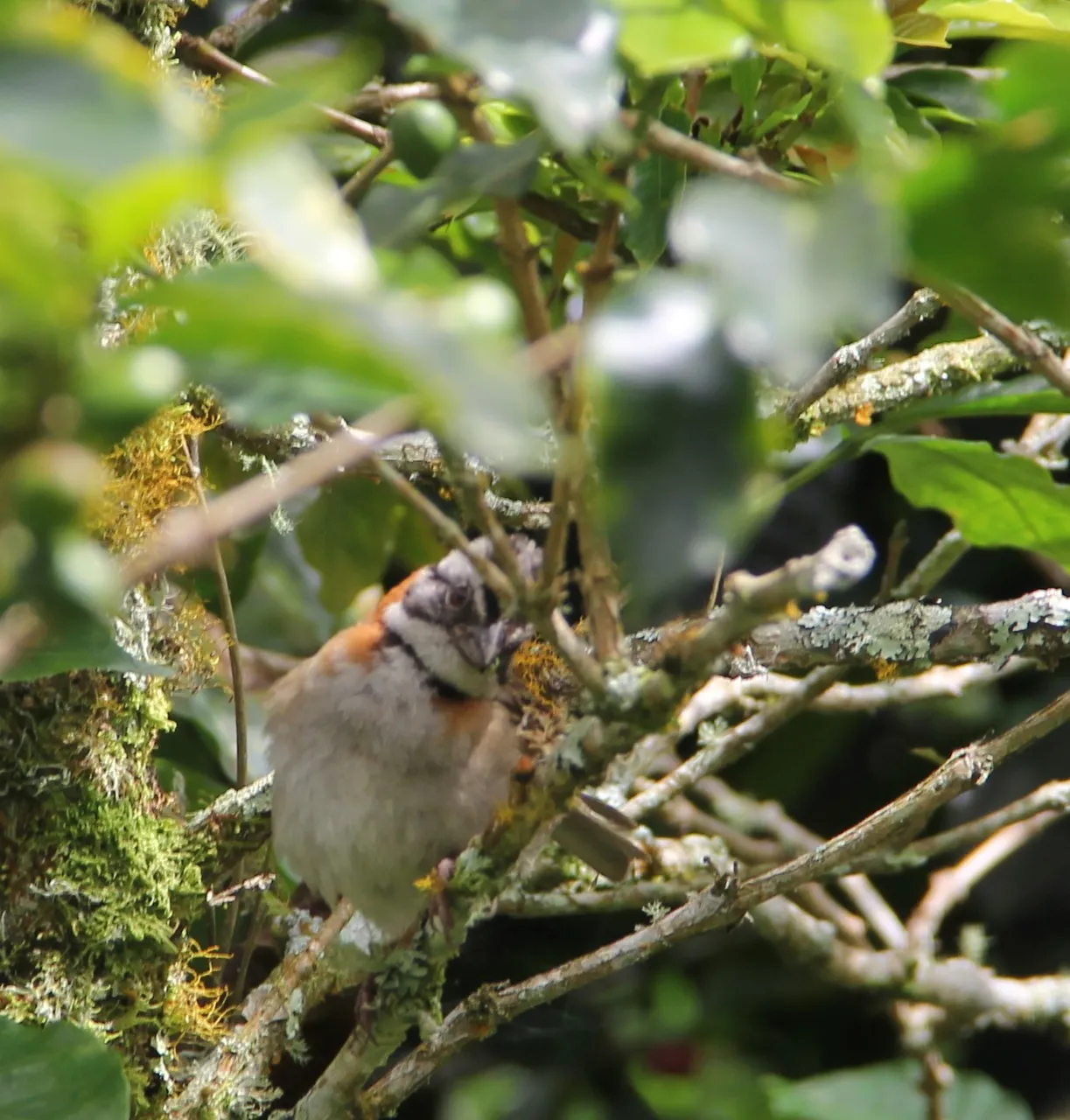
Apparently he likes to have a well varied diet, because he also likes to eat guavas, small herb flowers and seeds of different grasses.
Al parecer le gusta tener una dieta bien variada, porque también le gusta comer guayabas, pequeñas flores de arvences y semillas de pastos.
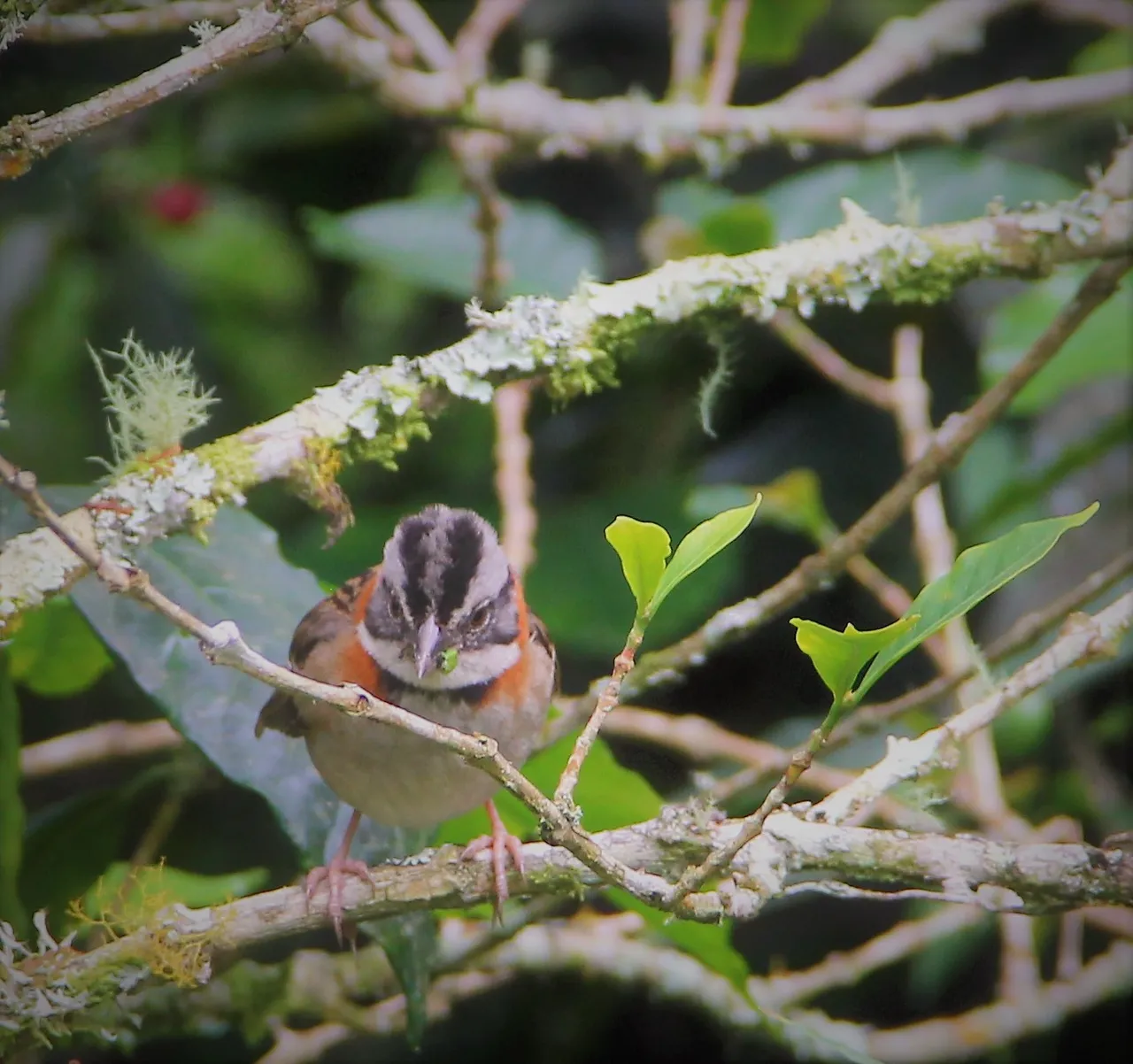
We keep watching him, he comes closer and he has more confidence every day. We are happy to know that this species lives on our farm, as it is part of the list of species in danger of extinction.
Lo seguimos observando él, llega cada vez más cerca y cada día tiene más confianza. Nos hace feliz saber que ésta especie habita en nuestra finca, pues hace parte de la lista de las especies en peligro de extinción.
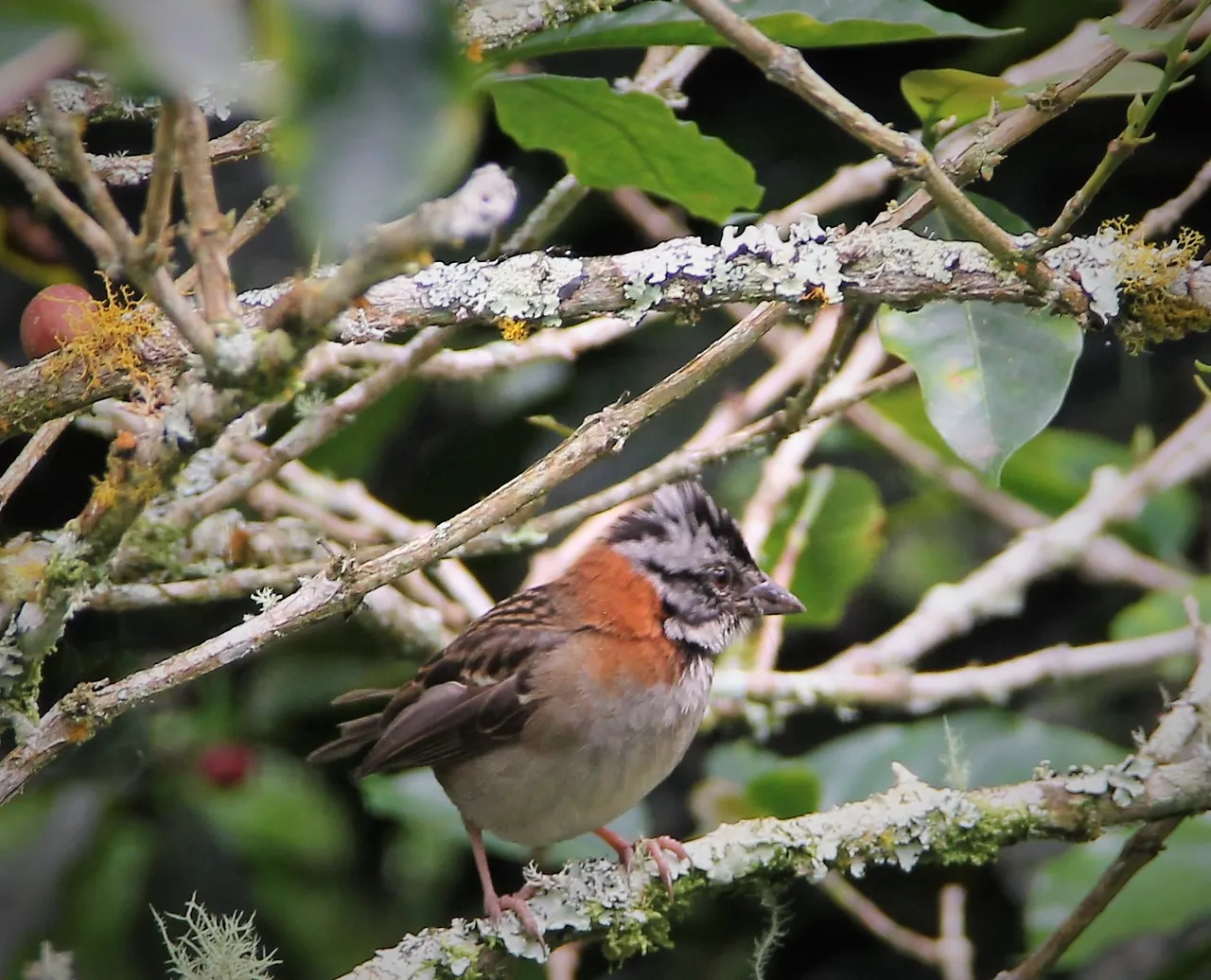
There are several reasons why the Zonotrichia capensis, is in danger of extinction: One of them is the agrarian extension, because some farmers cut and burn lots to expand monocultures, which results in habitat loss. Another reason is that this species is the victim of parasitism of interspecific breeding (1) a reproductive breeding strategy.
Existen varias razones del porque el Zonotrichia capensis, corre peligro de extinción: Una de ellas es la extensión agrícola, pues algunos granjeros cortan y queman los lotes para ampliar los monocultivos, que resulta en una perdida de habitat. Otra razón es que ésta especie es victima de parasitismo de cría interespecífico (1) una estrategia de cría reproductiva.
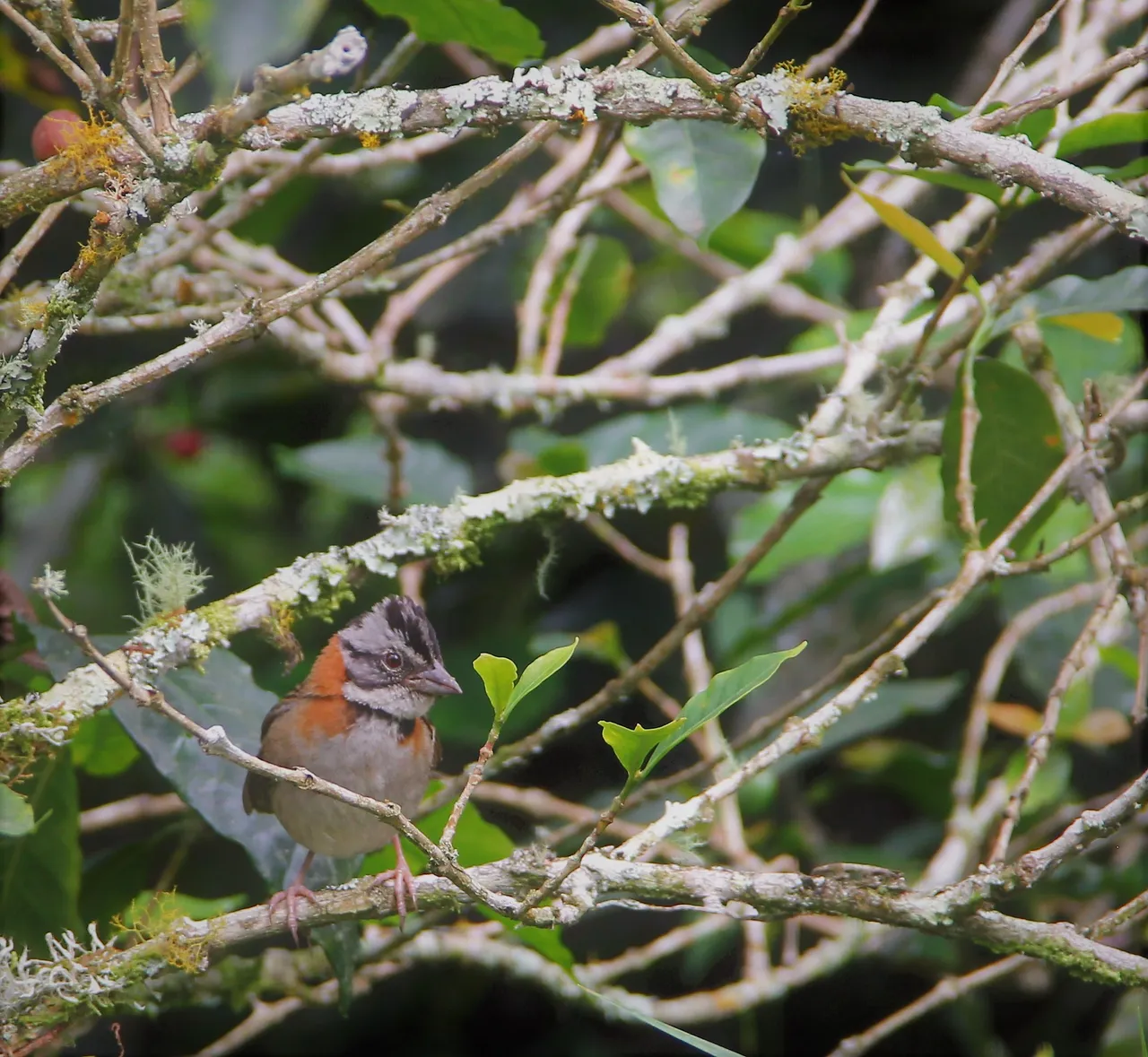
This means that an individual of a species (the parasite) in this case is the Chamom Molothrus bonariensis, lays its eggs in the nest of the other species (the host) as it happens to our Zonotrichia capensis, who ends up in incubation, feeding and raising the chicks of the parasitic species.
Esto significa que un individuo de una especie (el parásito) en este caso es el chamón Molothrus bonariensis, deposita sus huevos en el nido de la otra especie (el hospedador) como le ocurre a nuestro Zonotrichia capensis, quien termina encubando, alimentando y criando a los pichones de la especie parásita.
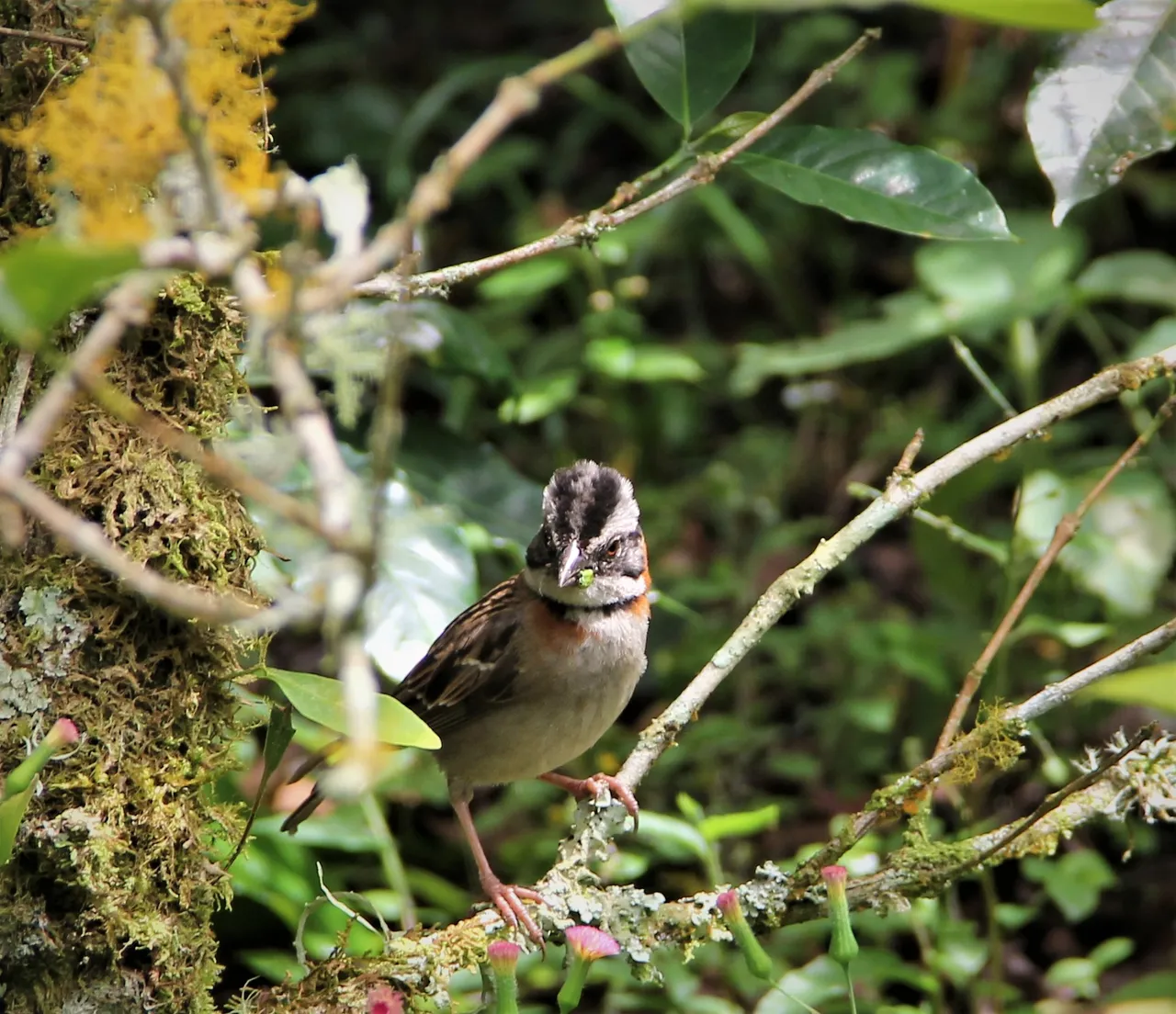
We try to maintain several areas of the farm with different wild, native plants, so that our sparrow copetón has a safe place and can overcome the challenges that nature puts on it.
Nosotros tratamos de mantener varias áreas de la finca con diversas arvenses nativas, para que nuestro gorrión copetón tenga un lugar seguro y pueda superar los retos que la misma naturaleza le pone.
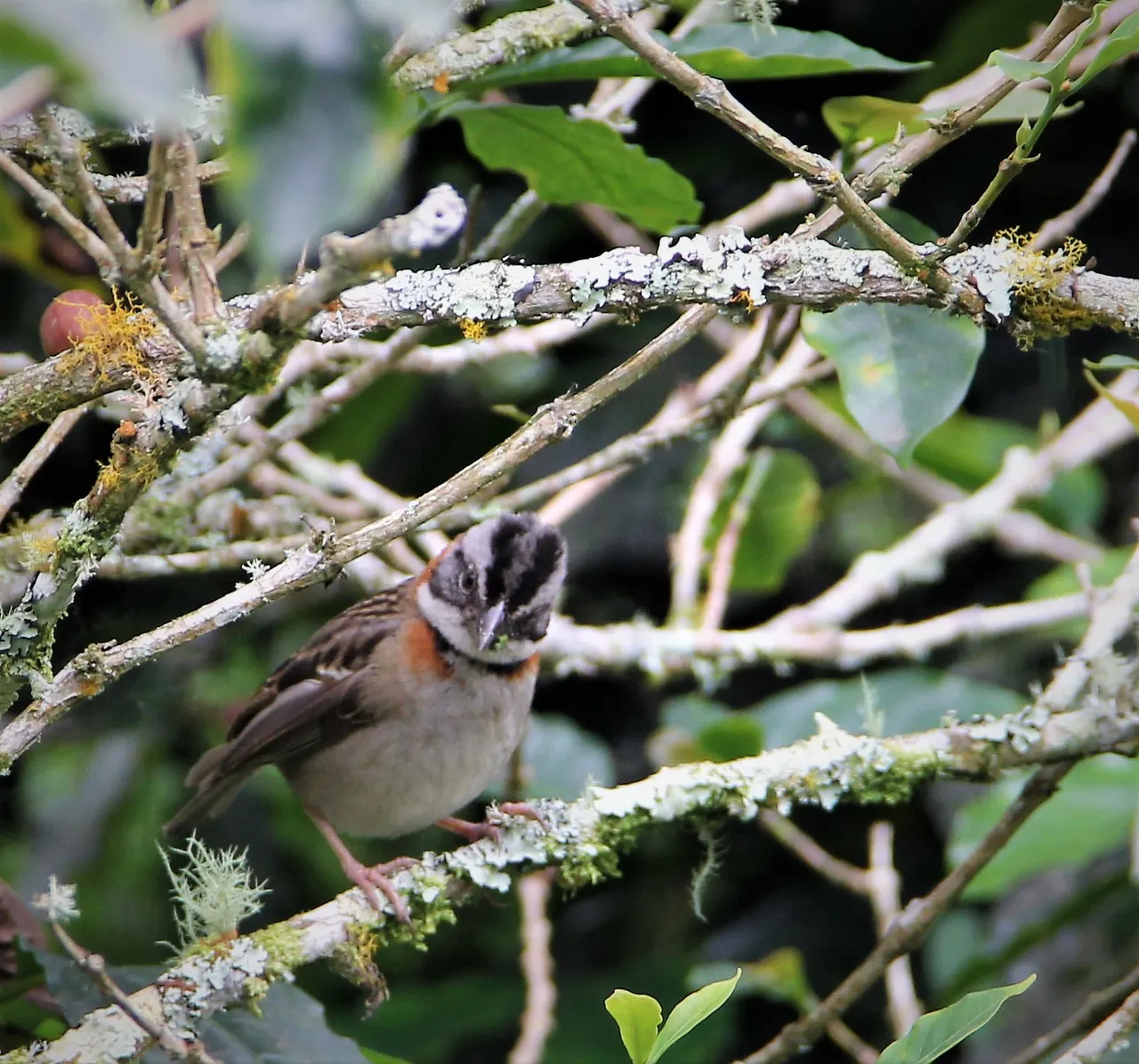
Now we plant some garlic in pots and let our Zonotrichia capensis be wherever it wants, it is part of our responsibility to increase the population of this beautiful species that accompanies us with its melodious song.
Ahora sembramos algunos ajos en materas y dejamos que nuestro Zonotrichia capensis este donde quiera, hace parte de nuestra responsabilidad hacer que aumente la población de ésta hermosa especie que nos acompaña con su melodioso canto.
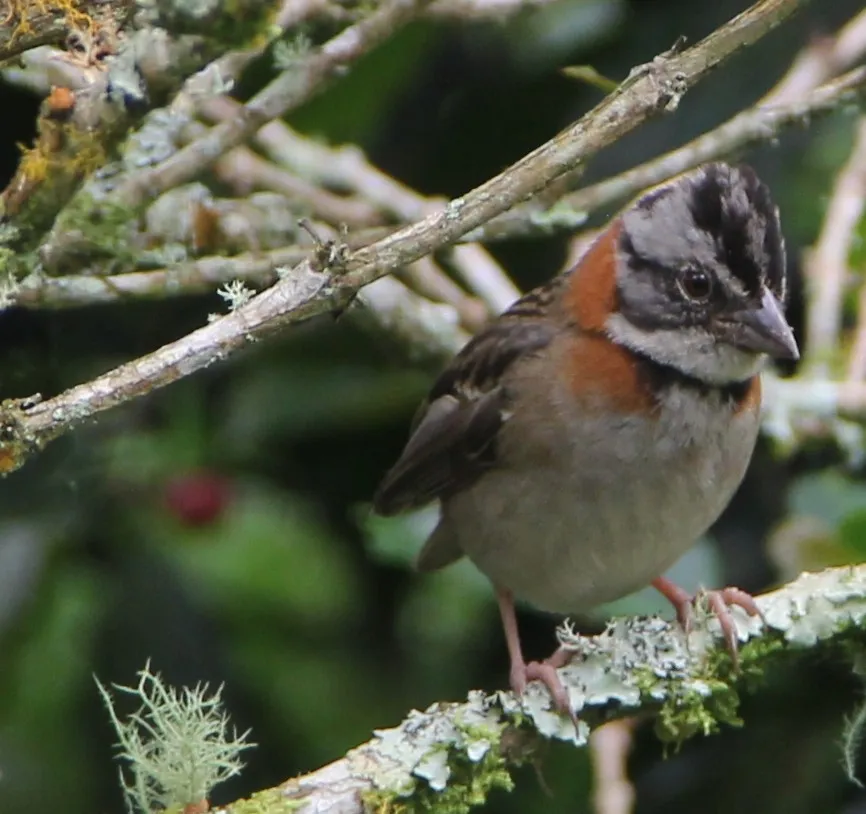
God bless you
Dios los bendiga
REF: (1) - http://www.scielo.org.ar/scielo.php?pid=S0073-34072003000200001&script=sci_arttext
Autór/Author: (Ortega 1998, Davies 2000)